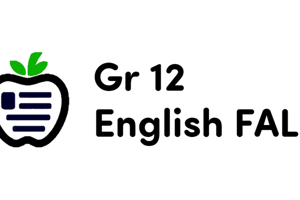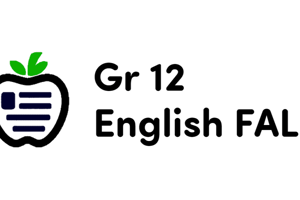Podcast
Questions and Answers
Which sentence correctly uses the present simple to refer to the future?
Which sentence correctly uses the present simple to refer to the future?
- I will see the doctor tomorrow morning.
- The sun rises at 6:00 AM tomorrow. (correct)
- The train will be arriving at 6 PM.
- I am going to a party tonight.
In time clauses with conjunctions such as 'after', 'as soon as', 'before', we should use 'will' to refer to the future.
In time clauses with conjunctions such as 'after', 'as soon as', 'before', we should use 'will' to refer to the future.
False (B)
We use the present simple, not will, to refer to the future in real conditional clauses with if, in case, provided, and ______.
We use the present simple, not will, to refer to the future in real conditional clauses with if, in case, provided, and ______.
unless
Which of the following is the most suitable way to ask guests who have stayed longer than expected when they are leaving?
Which of the following is the most suitable way to ask guests who have stayed longer than expected when they are leaving?
Which sentence correctly uses the future continuous tense?
Which sentence correctly uses the future continuous tense?
The future perfect is used to describe an ongoing action at a specific time in the future.
The future perfect is used to describe an ongoing action at a specific time in the future.
By the time you arrive, I __________ (finish) cleaning the entire house.
By the time you arrive, I __________ (finish) cleaning the entire house.
Which sentence uses the future perfect continuous correctly?
Which sentence uses the future perfect continuous correctly?
The future continuous, future perfect, and future perfect continuous can be used to express what we believe is already happening.
The future continuous, future perfect, and future perfect continuous can be used to express what we believe is already happening.
What tense is typically used for events that are part of a timetable?
What tense is typically used for events that are part of a timetable?
Match the future tenses with their primary use:
Match the future tenses with their primary use:
Which is the correct way to complete the sentence: When you see Ben, tell him he ______ me some money.
Which is the correct way to complete the sentence: When you see Ben, tell him he ______ me some money.
We use present continuous for the future when we make or report predictions about activities or events over which we have no control.
We use present continuous for the future when we make or report predictions about activities or events over which we have no control.
Many people avoid be going to + go/come and use the present _________ forms of go and come instead.
Many people avoid be going to + go/come and use the present _________ forms of go and come instead.
Which of the following sentences about a concert uses the correct future tense?
Which of the following sentences about a concert uses the correct future tense?
Which of these options is the best way to complete the sentence Provided the right software is available,...:
Which of these options is the best way to complete the sentence Provided the right software is available,...:
Present continuous is used for the future when we talk about permanent future situations.
Present continuous is used for the future when we talk about permanent future situations.
When we talk about possible future events with suppose, supposing, and _______ at the beginning of a sentence, we use present simple.
When we talk about possible future events with suppose, supposing, and _______ at the beginning of a sentence, we use present simple.
Which sentence correctly uses future continuous to describe a predicted event?
Which sentence correctly uses future continuous to describe a predicted event?
The future perfect is used to describe a continuous action up to a point in the future.
The future perfect is used to describe a continuous action up to a point in the future.
Which future tense emphasizes the duration of an activity in progress before a specific future time?
Which future tense emphasizes the duration of an activity in progress before a specific future time?
Match the sentence with the most appropriate tense
Match the sentence with the most appropriate tense
Which sentence correctly uses present continuous form of go/come to indicate a future action?
Which sentence correctly uses present continuous form of go/come to indicate a future action?
The sentence I think it's going to rain soon is an example of using the present continuous for the future.
The sentence I think it's going to rain soon is an example of using the present continuous for the future.
When the race starts later this afternoon, the drivers _____(hope) for drier weather than last year.
When the race starts later this afternoon, the drivers _____(hope) for drier weather than last year.
Flashcards
Present Simple for Future
Present Simple for Future
Used for events part of a timetable or routine, preferred for fixed, unchangeable events.
Present Simple in Time Clauses
Present Simple in Time Clauses
Used in time clauses with conjunctions such as after, as soon as, before, by the time, when, while, until.
Present Simple in Conditional Clauses
Present Simple in Conditional Clauses
Used in real conditional clauses with if, in case, provided, and unless.
Suppose/Supposing/What if...
Suppose/Supposing/What if...
Signup and view all the flashcards
Present Continuous for Future
Present Continuous for Future
Signup and view all the flashcards
Don't use Present Continuous for...
Don't use Present Continuous for...
Signup and view all the flashcards
Don't use Present Continuous for...
Don't use Present Continuous for...
Signup and view all the flashcards
Avoiding 'be going to + go/come'
Avoiding 'be going to + go/come'
Signup and view all the flashcards
Future Continuous
Future Continuous
Signup and view all the flashcards
Future Continuous for Regular Events
Future Continuous for Regular Events
Signup and view all the flashcards
Indicating willingness...
Indicating willingness...
Signup and view all the flashcards
Future Perfect
Future Perfect
Signup and view all the flashcards
Future perfect for politeness
Future perfect for politeness
Signup and view all the flashcards
Future Perfect Continuous
Future Perfect Continuous
Signup and view all the flashcards
Study Notes
Present Simple for Future Events
- Used for events on a timetable or program.
- Preferred for fixed, unchangeable events like sunrise times.
- Example: "The sun rises at 5:16 tomorrow" is more common than using "will".
- Avoided for less formal arrangements or predictions; use "will," "be going to," or the present continuous instead.
- Example: "Are you staying in to watch TV tonight?" is better than "Do you stay to watch TV tonight?"
Present Simple in Time and Conditional Clauses
- Used in time clauses with conjunctions like "after," "as soon as," "before," "by the time," "when," "while," and "until."
- Example: "When you see Ben, tell him he still owes me some money" is correct; avoid using "will".
- Used in real conditional clauses with "if," "in case," "provided," and "unless."
- Example: "Provided the right software is available, I should be able to solve the problem".
- Used with "suppose," "supposing," and "what if" to discuss possible future events (can also use past simple with a similar meaning).
- Example: "Suppose we miss the bus - how will we get home?" (or "Suppose we missed ...").
Present Continuous for Planned Future Events
- Used interchangeably with "be going to" for planned events.
- Indicates a firm intention or a definite decision.
- Example: "Are you seeing the doctor again next week?" or "Are you going to see ...?".
- Not used for predictions about uncontrollable events.
- Example: "I think it's going to rain soon" is correct instead of using the present continuous.
- Avoid when discussing permanent future situations.
Avoiding "be going to + go/come"
- Many people prefer using the present continuous of "go" and "come" instead of "be going to + go/come".
- Example: "I'm going to town on Saturday" is preferred over "I'm going to go to town...".
Future Continuous: I will be doing
- Used to describe something that is predicted to start before a particular point in the future and may continue after that point/describes the continuation of an action at a specific time in the future.
- Often the result of a previous decision or arrangement.
- Example: When the spacecraft goes into orbit, it will be carrying 30 kilos of plutonium.
- Also used for a future activity that is part of the normal course of events or a repeated series of events.
- Example: Dr. Lin will be giving the same talk in room 103 at ten next Thursday.
Comparison with Present Continuous
- Can often use either future continuous or present continuous for arranged activities or events in the future.
- Future continuous is preferred when not wanting to indicate willingness, intention, or invitation.
- When wondering the plans of someone, use will + subject + be + verb-ing
Future Perfect: I will have done
- Used to say that something will be ended, completed, or achieved by a particular point in the future.
- Example: By the time you get home, I will have cleaned the house from top to bottom.
- Used for politeness in formal contexts.
- Example: I hope this email will have reassured you that no further action is required.
Future Perfect Continuous: I will have been doing
- Used to emphasize the duration of an activity in progress at a particular point in the future.
- Example: Next year I will have been working in the company for 30 years.
- With both future perfect and future perfect continuous, mention the future time.
Expressing Belief or Imagination
- Future continuous, future perfect, and future perfect continuous can also be used to say what we believe or imagine is happening around now.
- Example: Joe won't be using his car today - he went to work by bike.
- Future perfect continuous can express what we think was happening at a point in the past.
- Motorist Vicky Hao will have been asking herself whether speed cameras are a good idea after being fined.
Studying That Suits You
Use AI to generate personalized quizzes and flashcards to suit your learning preferences.





